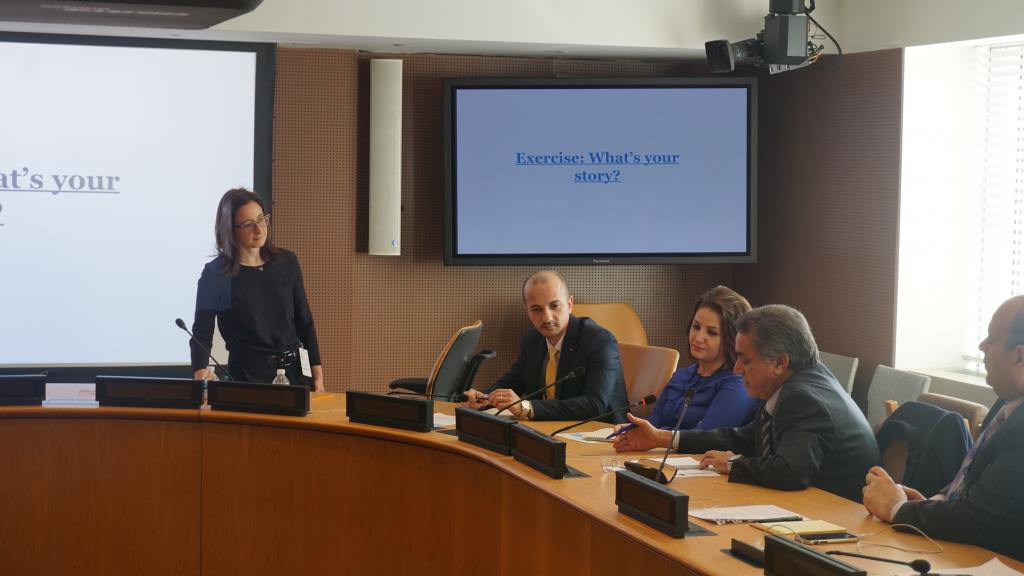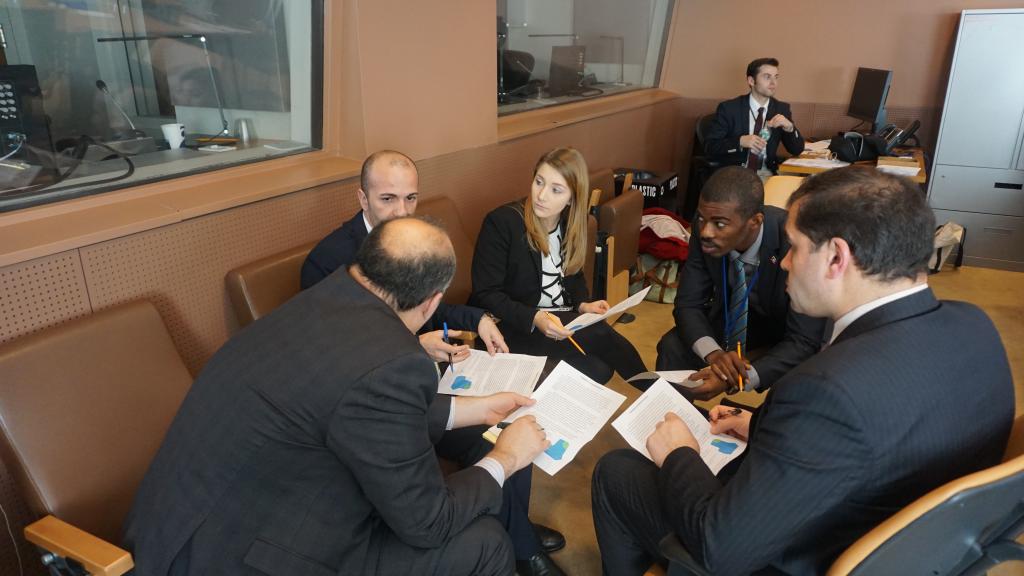 17 November 2016, New York, USA - The United Nations Institute for Training and Research, in partnership with Columbia Law School and sponsored by the Permanent Mission of Sweden to the United Nations, continued the series of courses entitled “Conflict Resolution, Mediation and Negotiation”. The second course in the series, taking place on 17 November, 2016, was entitled, “Processes for Sustainable Peace”. The course was attended by 25 diplomats, predominantly from member states of the Forum of Small States (FOSS) who enjoyed the sponsorship of the Permanent Mission of Sweden to the United Nations.
17 November 2016, New York, USA - The United Nations Institute for Training and Research, in partnership with Columbia Law School and sponsored by the Permanent Mission of Sweden to the United Nations, continued the series of courses entitled “Conflict Resolution, Mediation and Negotiation”. The second course in the series, taking place on 17 November, 2016, was entitled, “Processes for Sustainable Peace”. The course was attended by 25 diplomats, predominantly from member states of the Forum of Small States (FOSS) who enjoyed the sponsorship of the Permanent Mission of Sweden to the United Nations.
The opening remarks were given by Mr. Marco A. Suazo, Head of UNITAR New York Office. He welcomed the delegates to the course and thanked the esteemed professors for their participation. He also thanked Ms. Teresa Carlsson, First Secretary from the Permanent Mission of Sweden and the Mission for their support and sponsorship of FOSS member states for the series of courses. Then opening remarks were made by Professor Alexandra Carter, Director of the Mediation Clinic at Columbia Law School and Professor Shawn Watts, Associate Director of the Mediation Clinic and Columbia Law School. The professors welcomed the delegates and opened the course.
The morning session began with an exercise entitled “what’s your story?” The delegates were asked to make pairs and tell their own story, then the partner had to tell the story to the rest of the participants out loud. The purpose of this exercise was to look back to interest recognition, summarizing; and look forward to consideration of players’ identities as a method to achieve sustainable conflict resolution.
 This led to an in-depth discussion about Goal 16: Peace, Justice, and Strong Institutions. Goal 16 of the Sustainable Development Goals is dedicated to the promotion of peaceful and inclusive societies for sustainable development, the provision of access to justice for all, and building effective, accountable institutions at all levels.
This led to an in-depth discussion about Goal 16: Peace, Justice, and Strong Institutions. Goal 16 of the Sustainable Development Goals is dedicated to the promotion of peaceful and inclusive societies for sustainable development, the provision of access to justice for all, and building effective, accountable institutions at all levels.
Conversation on Goal 16 led to a discussion on the methods of Conflict Resolution used by decision-makers and decision-making bodies.
After lunch, the afternoon session began with another exercise. Participants were told to close their eyes and follow the instructions. Participants were given a blank piece of paper and had to cut it up into different squares following the instructions. By the end of the exercise, all participants were told to show their end result, most of whom had obtained a completely different result to the person next to them. This result proved that each one of us understood the instructions differently even though we were all given the same ones; it lead to a conversation on the importance of Precise Agreements and Agreement-Writing Principles. In Agreement-Writing Principles it was stated that it must include: clarity, precision, thoroughness, accounting for contingency, confirming uniform, understanding, and most importantly it was highlighted the impossibility of perfection.
The final exercise of the day was an Agreement Drafting Exercise.The delegates were split into four groups and were asked to role play mediation between two fictional countries. The delegates were asked to translate the dialogue between the two countries into what each group believed was a peaceful and sustainable agreement.
The day was closed by the professors thanking the delegates for their participation and encouraging them to join for the future courses, the third on 2 December 2016, entitled, “Conflict Resolution as a Tool for Innovation”. Mr. Suazo thanked the delegates for their attendance and thanked Professor Carter and Professor Watts for their informative instruction. The day was then closed.
Photo Credits: UN Media and UNITAR

